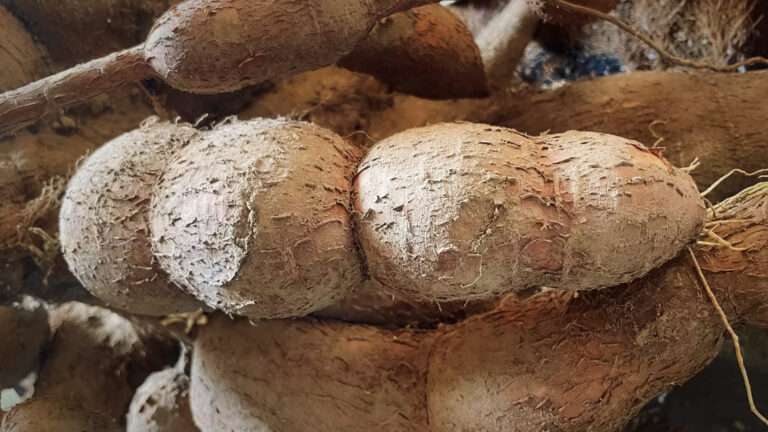Can Skipping Rice and Meat Protect You from Cancer?

In the quest to stay healthy and reduce the risk of cancer, many people are turning to various diet trends that involve eliminating specific foods, like rice or meat. But could cutting out these food groups really help prevent cancer, or might it cause more harm than good? According to experts, avoiding rice and meat entirely may not be the best approach and could lead to some serious health issues. Let’s break it down.

The Role of Rice and Meat in Our Diet
Before diving into the potential dangers of cutting out rice and meat, it’s important to understand their roles in a balanced diet. Both rice and meat can be part of a healthy, well-rounded eating plan when consumed in moderation.
Rice provides carbohydrates, the body’s main energy source. Without enough carbohydrates, we can feel sluggish and tired, as our brain and muscles rely on glucose from carbs to function. Brown rice, in particular, offers fiber and nutrients that help with digestion and provide sustained energy.
Meat is a rich source of protein, which is essential for repairing and regenerating tissues, maintaining immune function, and building muscle. Proteins are especially crucial for cancer patients, who need extra support for their immune systems and to promote tissue healing. In addition to proteins, meat also provides essential vitamins and minerals like iron and zinc.

The Dangers of Over-Eliminating Foods
While rice and meat both have important nutritional benefits, eliminating them entirely from your diet can lead to various health problems. Dr. Dinh Tran Ngoc Mai, a renowned expert at the University of Medicine and Pharmacy in Ho Chi Minh City, warns that cutting out entire food groups can lead to nutrient deficiencies, which can weaken the immune system and lead to other health issues, including muscle loss, physical weakness, and even energy deficiencies.
For cancer patients, this can be especially harmful. The body needs a variety of nutrients to support healing and boost immunity, and a lack of balanced nutrition can make it more difficult for the body to fight diseases and recover.

Can Meat and Rice Increase Cancer Risk?
While avoiding rice and meat might not be the answer, it’s important to note that consuming excessive amounts of red meat and processed meats could increase cancer risks. Dr. Mai points out that overconsumption of red meats (like beef, pork, and lamb) and processed meats (such as sausages and ham) can contribute to an elevated risk of colorectal cancer. This is because these meats contain harmful compounds produced during digestion, and processed meats often include preservatives, additives, and high levels of salt—all of which have been linked to cancer risk.

A Balanced Approach: The Key to Cancer Prevention
Instead of completely eliminating rice or meat from your diet, the key to cancer prevention is a balanced approach to eating. Dr. Mai emphasizes the importance of consuming a variety of nutrient-dense foods to maintain good health and reduce the risk of cancer.
Here are some tips to keep in mind:
- Increase Vegetables and Fruits: These foods are rich in antioxidants and fiber, which help protect your cells from damage caused by free radicals and inflammation—two factors that contribute to cancer development. Aim to eat a variety of colorful fruits and vegetables to get the maximum health benefits.
- Limit Red Meat and Processed Foods: While meat can provide essential nutrients, it’s best to limit the amount of red meat and processed meats in your diet. Instead, try healthier sources of protein like fish, beans, nuts, and seeds.
- Choose Whole Grains: When it comes to rice, opting for whole grains like brown rice, quinoa, or oats is a better choice. These grains provide more fiber and nutrients than refined grains like white rice, and they help support digestive health.
- Healthy Cooking Methods: How you cook your food matters. Steaming, boiling, and stir-frying are healthier cooking methods compared to grilling or deep-frying, which can create harmful compounds that may increase cancer risk.
- Watch Your Sugar and Salt Intake: Excessive sugar and salt can lead to chronic inflammation and health problems. Moderation is key to reducing the risk of cancer and other diseases.

Final Thoughts: A Balanced Diet for Better Health
Rather than drastically cutting out rice or meat, the focus should be on a balanced, diverse diet that supports overall health and helps prevent chronic diseases, including cancer. By prioritizing nutrient-rich foods, reducing processed foods, and using healthy cooking methods, you can create a lifestyle that supports your body’s needs while lowering the risk of cancer.
Remember, small, sustainable changes to your diet—such as eating more fruits, vegetables, whole grains, and lean proteins—will go a long way in supporting your health and reducing your cancer risk. A well-balanced diet is key to keeping your body strong, boosting your immune system, and protecting your cells from harmful damage.






